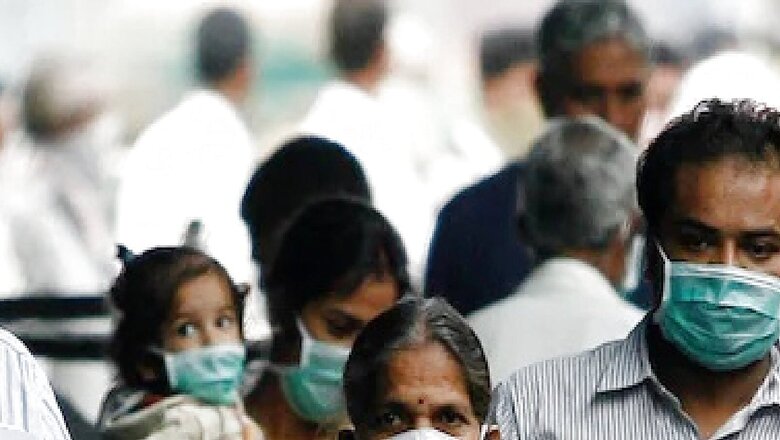
views
In this week’s class with News18, we will talk about consumer protection, what is it, the rights and responsibilities that a consumer has. Very few consumers are aware of the rights given to them by the Consumer Protection Act 2019 which addresses consumer concerns and aims to safeguard their interests. It replaced the Act of 1986.
Who is a consumer?
A consumer is a person who uses or consumes products or goods or avails of any service. As per the Consumer Protection Act 2019, a person who buys any goods or avails services for a consideration, which has been paid or promised, or partly paid and partly promised, or under any scheme of deferred payment is a consumer.
“The Consumer Protection Act 2019 seeks to protect and promote the consumers’ interest through speedy and inexpensive redressal of their grievances. It extends to the whole of India. It is applicable to all types of businesses whether a manufacturer or a trader and whether supplying goods or providing services including e-commerce firms. The Act confers certain rights to consumers with a view to empowering them and to protect their interests," reads the NCERT class 12 business studies book.
Example: Let’s look at an example to get a better understanding. A girl named Radha has gone to the store to buy a television. In this context, Radha is a consumer and the TV is the product. The store or its owner is the seller. The same applies when one takes a taxi. If Radha is going to the store in a taxi, here too, she becomes the consumer and the taxi rise is the service availed of. The driver is the seller.
Consumer rights: What is means?
Protecting consumers from unethical malpractices by businesses is the main role of the Act. According to NCERT book, it provides redressal of their grievances in terms of sale of adulterated goods which includes adding inferior substances to products being sold, sale of counterfeit goods such as selling a product of lesser value than the real product, sale of products that do not meet the prescribed quality standards, and sale of duplicate goods.
It also includes misleading advertisements such those which falsely claim a product or a service is of superior quality even if it is not the real case, use of malfunctioning weights and measures that lead to underweight of products, black marketing and hoarding, overcharging of a product, supplying defective goods, and supply of poor quality products or services. Consumers must remain aware of their rights to avoid being exploited.
Further, as per the NCERT chapter, for business organisations, they use resources which belong to the society. “They have a responsibility to supply such products and render such services which are in public interest and would not impair public confidence in them," it adds.
Example: Taking the context of Radha once again, when she is going to buy TV, she must make sure of a few things before buying them — if the TVs are properly priced, they are functioning properly, there must not be any defect or any other claim/ offer that the store offers give should be followed.
If Radha finds any false promise on behalf of the seller, she will know she is being exploited. Radha either should not buy the TV or if she notices any of the defects after buying, she must immediately inform the store. Radha has the right to address her grievances when it comes sale of defected goods. The store must then take the responsibility and either refund her money or exchange with better quality oranges to protect Radha’s trust in them.
Rights of Consumers
The rights of the consumer include:
Right to safety: A consumer can ask about the quality and guarantee of the goods before buying them. They have the right to be protected against goods and services which are hazardous to life, health and property. A certified product like ISI must be purchased.
Right to be assured: They have the right to choose from a variety of products after thoroughly checking all details about them. This means marketers should offer a wide variety of products in terms of quality, brand, prices, size, etc and allow the consumer to make a choice from amongst these.
Right to be informed: Before buying, consumers must be informed about all the necessary details of the product to help make them in buying the right product.
Right to be heard: Consumer can express their grievances regarding a product or service which must be heard by the traders.
Right to seek redressal: If the consumer feels exploited or is dissatisfied with a product, they have the right to seek redressal
Right to consumer education: Consumer have a right to acquire knowledge and to be a well informed consumer. They should be aware about the rights and the reliefs available in case a product or service falls short of expectations. There are many organisations and businesses that are actively educating consumers about their rights.
Example: If Radha gets rotten oranges, she must know what are rights as a consumer are now. It is her right to be informed, and heard. If the problem still persists, she must put forth her grievances and address them to the store operators or write to them.
Responsibilities of Consumers
Consumers must remain aware of the quality of products and services before purchasing them. They must be free to speak out their grievances if they experience dissatisfaction with a particular product or service. Besides, they themselves must not indulge in any deceptive practice.
Consumers can ask for a cash memo on purchase of goods or services that would serve as a proof of the purchase made. Besides, they must file a complaint in an appropriate consumer forum in case of the quality of goods purchased or services availed is not up to the mark.
They must buy only standardised goods as they provide quality assurance. Hence, one must look for ISI mark on electrical goods, FPO mark on food products, Hallmark on jewelry, etc. Consumers need to read labels carefully to be informed about prices, net weight, manufacturing and expiry dates, etc.
Example: What exactly is Radha’s responsibility as a consumer? If she is disappointed with the TV, it is her right to inform the store operators about the same. She can file a formal complaint regarding the same. The store must then, in turn, either replace the TV or refund her money, if her claim is correct.
Redressal under the Consumer Protection Act
For the redressal of consumer grievances, the Consumer Protection Act 2019 provides setting up of a three-tier enforcement machinery. These will be at the district, state, and national levels, referred to as the district commission, state commission and the national commission, respectively. While the national level redressal commission is set up by the central government, the state and district forums are set up by the state government.
These forums allow removal of the defect in goods or deficiency in service, replace the defective product with a new one, refund the price paid or pay a reasonable amount of compensation for any loss or injury suffered by the consumer due to the negligence of the opposite party. It also allows to pay for punitive damages in appropriate circumstances and discontinue unfair or restrictive trade practice as well as cease manufacture of hazardous goods and to desist.
Read all the Latest Education News here



















Comments
0 comment